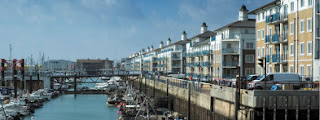Wealthy French residents flee leaving behind a fantastic choice of property in France
The selection of luxurious high end homes in France has greatly increased due to the recent french presidential election. It has been reported by the Daily Telegraph that lots of french families are ‘fleeing a proposed new tax rate of 75 per cent on all earnings over one million euros’ (around £780,000).This means that quite a few fantastic french properties are now making their way onto the french property market, suggesting that now could be a good time to invest in high end french property.
One of the top overseas estate agents has revealed that its french sector has sold over 100 properties valued at at least 1.7 million euros within the past couple of months (A significant increase when compared to the same time period last year)
"The result of the presidential election has had a real impact on our sales. Now a large number of wealthy French families are leaving the country as a direct result of the proposals of the new government.” Says Alexander Kraft, head of Sotheby's Realty in France.
"These properties are then bought up by foreign investors looking for a stable real estate market like France to invest in.”
"It shows the high-end property market is holding up very well, even in these difficult times."
If you have an interest in the french property market, are interested in buying a house in France or would like to take out a french mortgage, please get in touch with Conti - Mortgages Overseas via our website (www.mortgagesoverseas.com ) or via telephone 08009700985.


